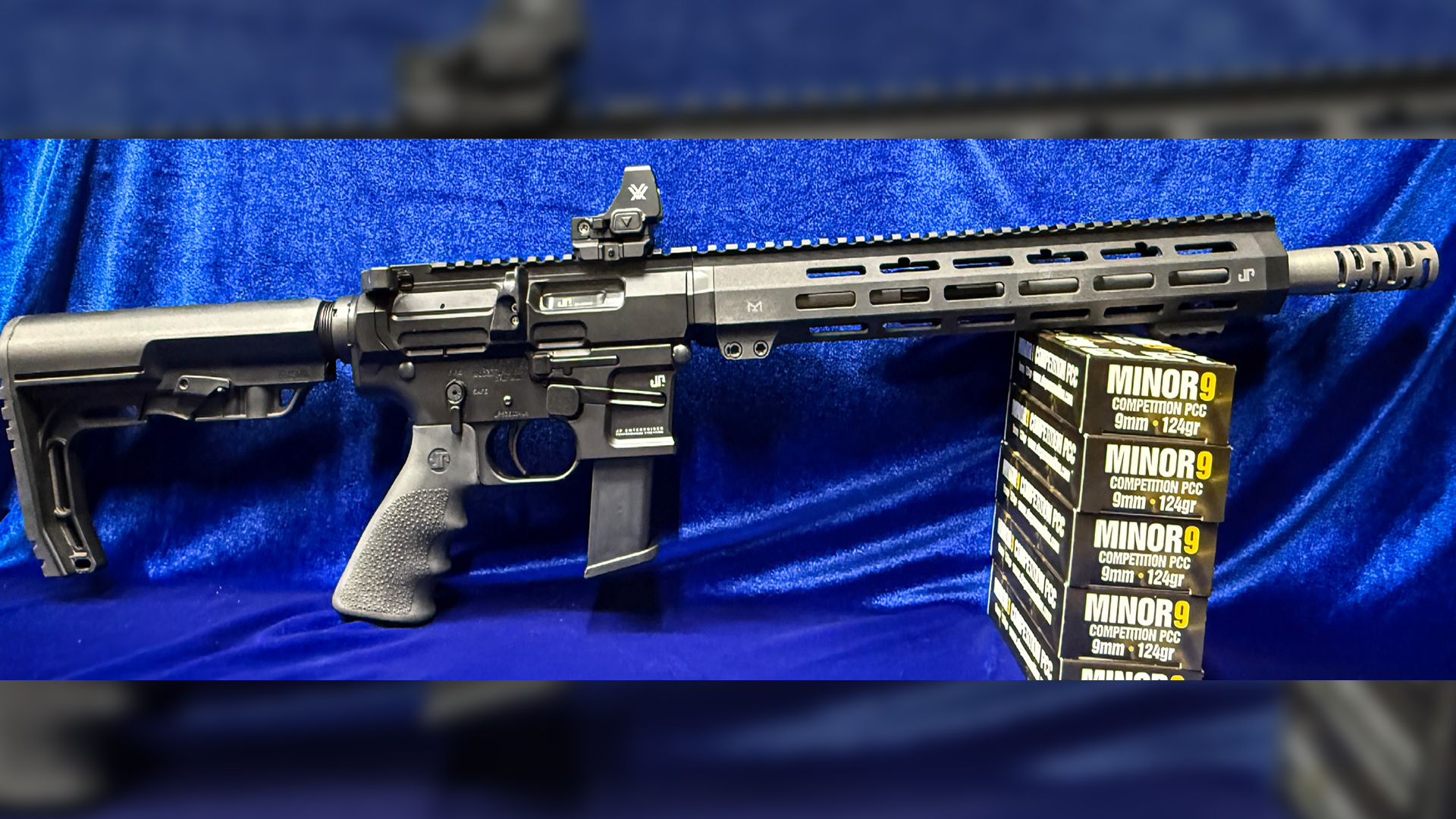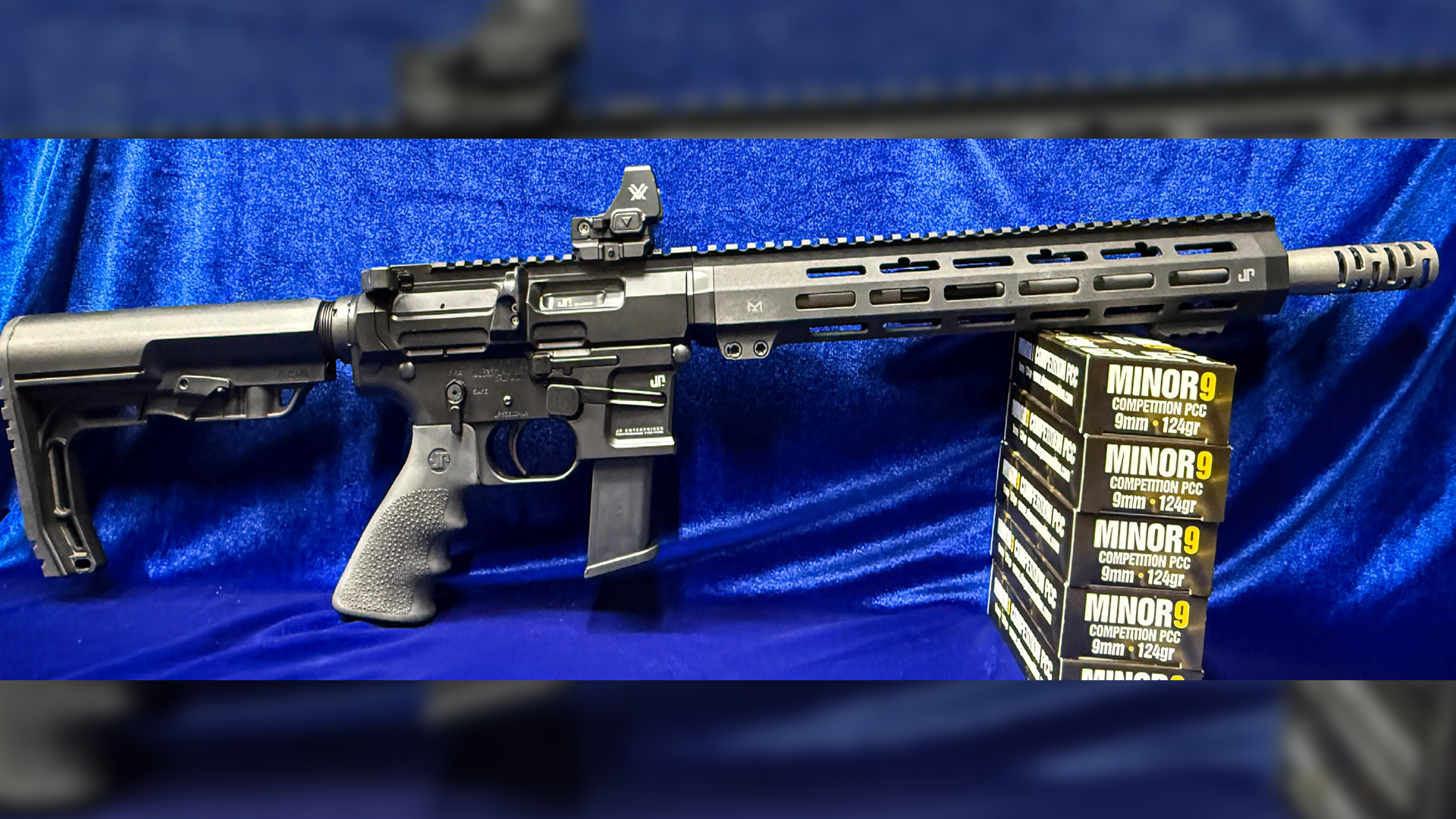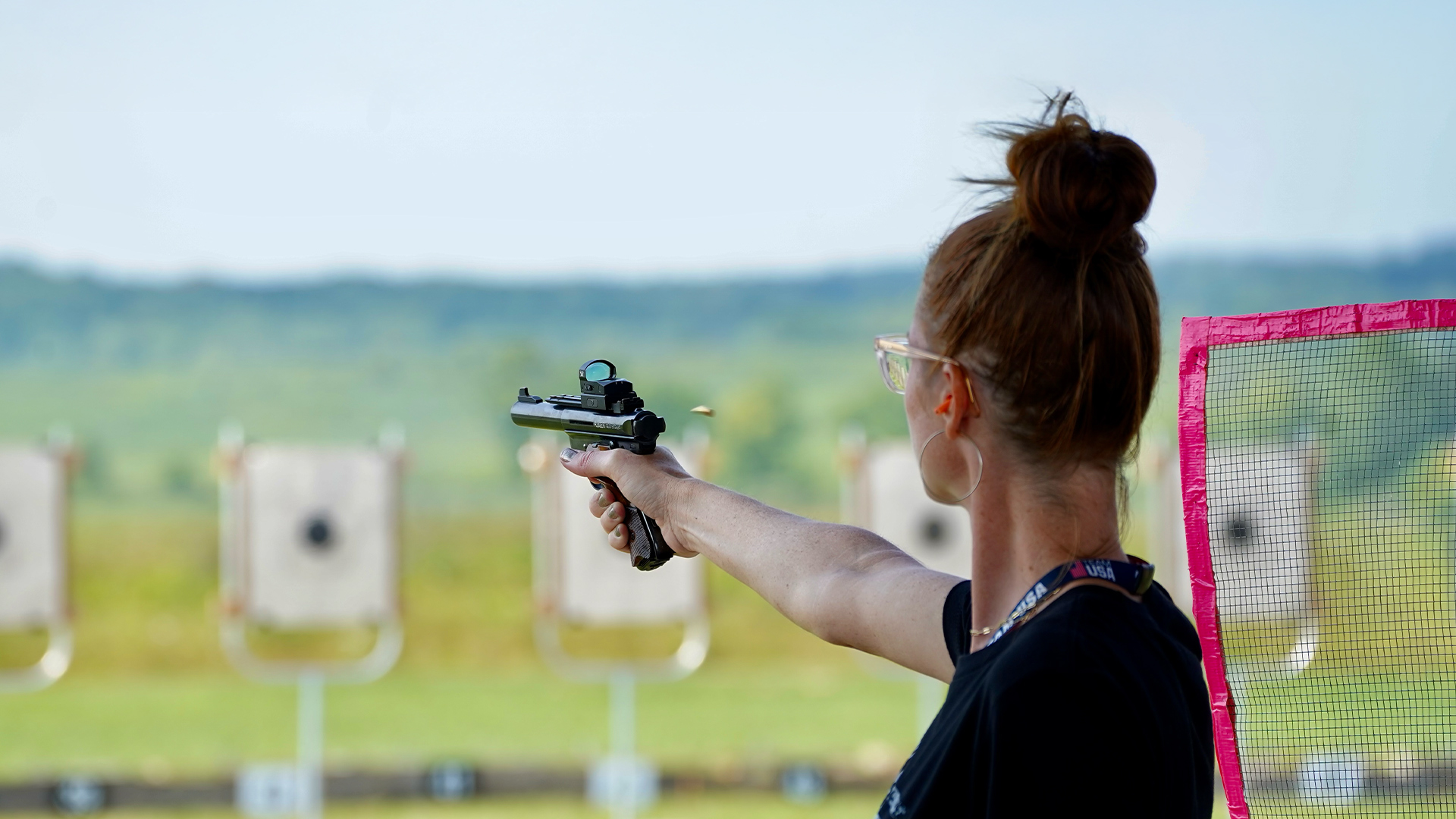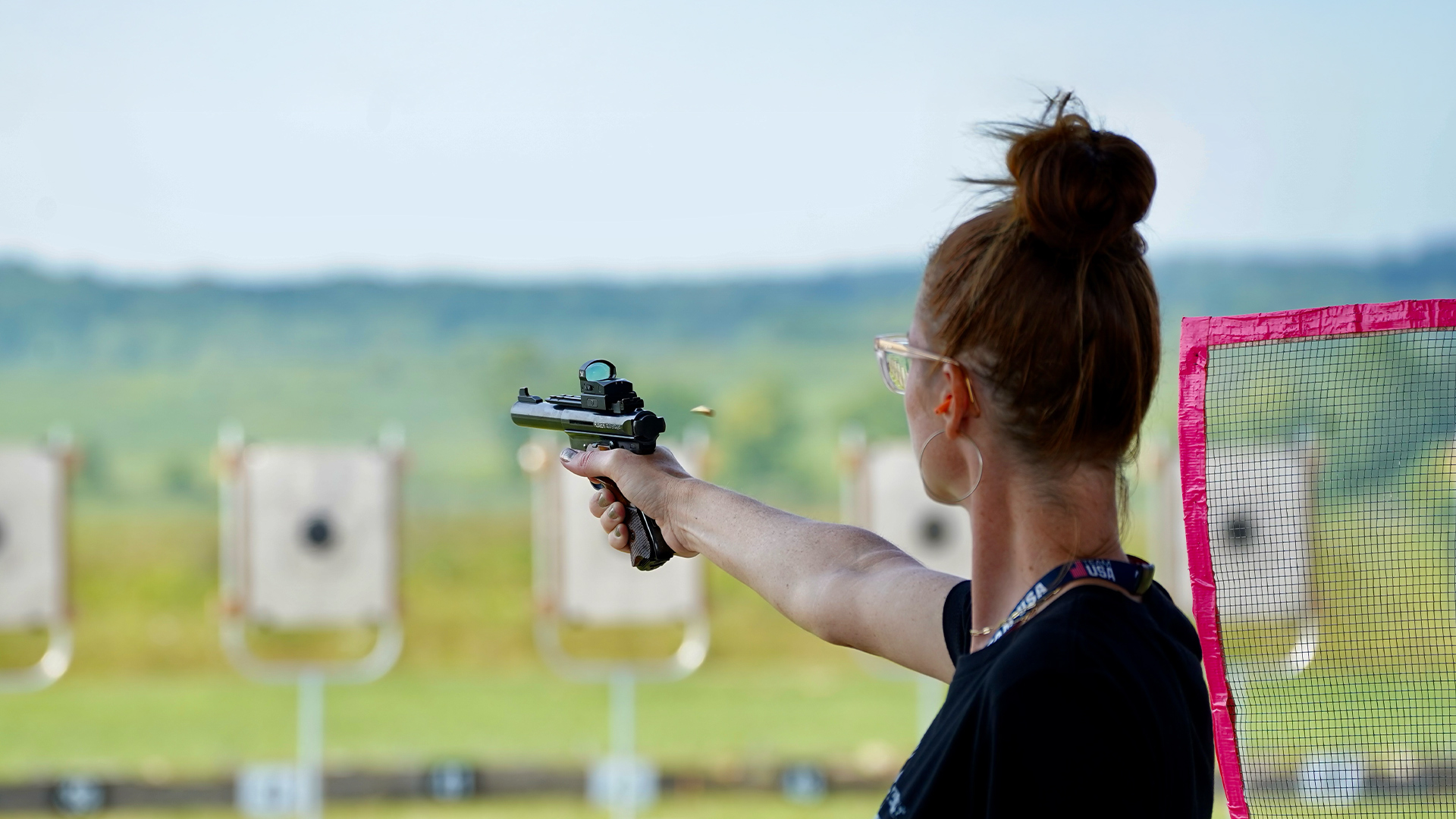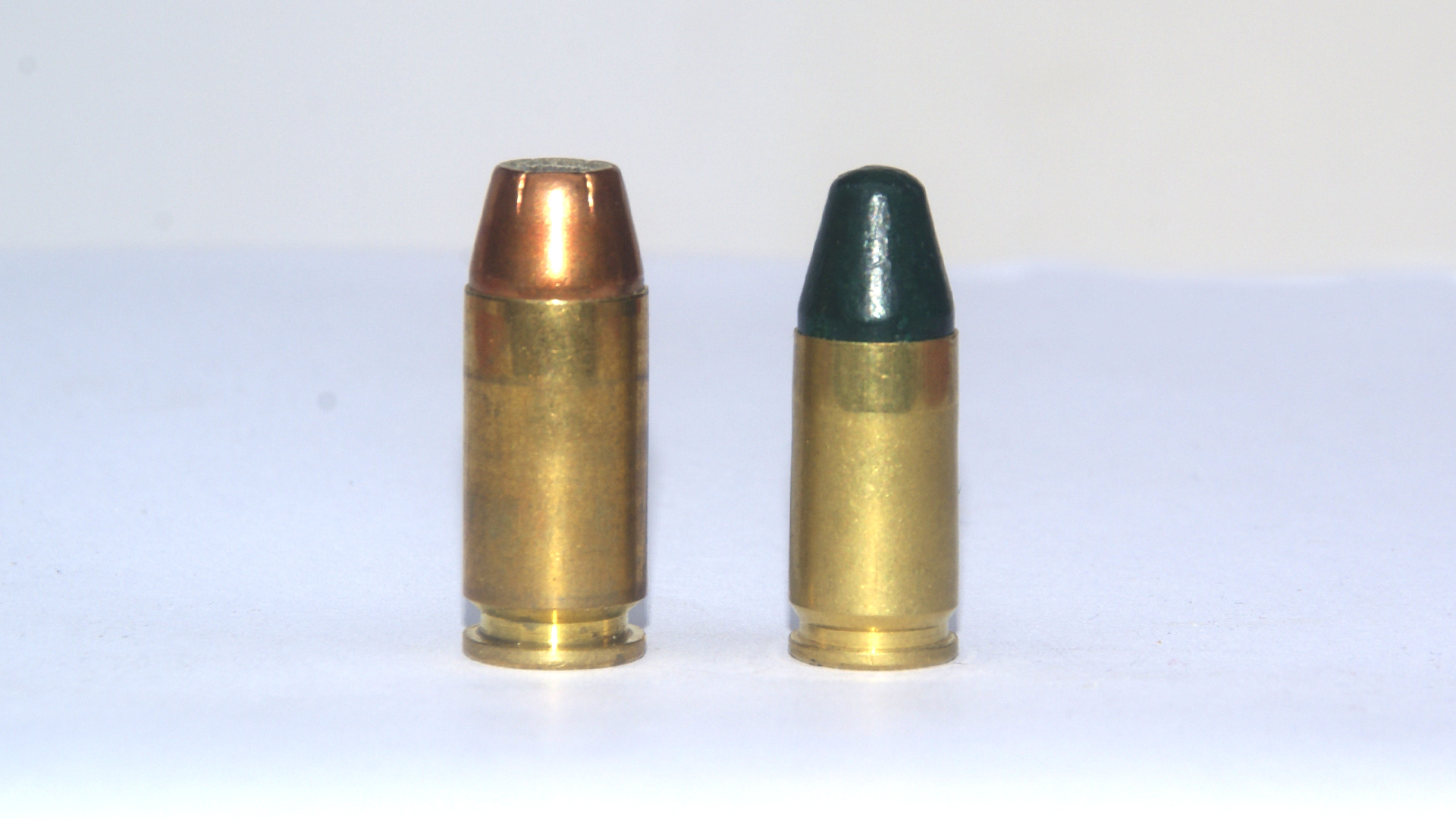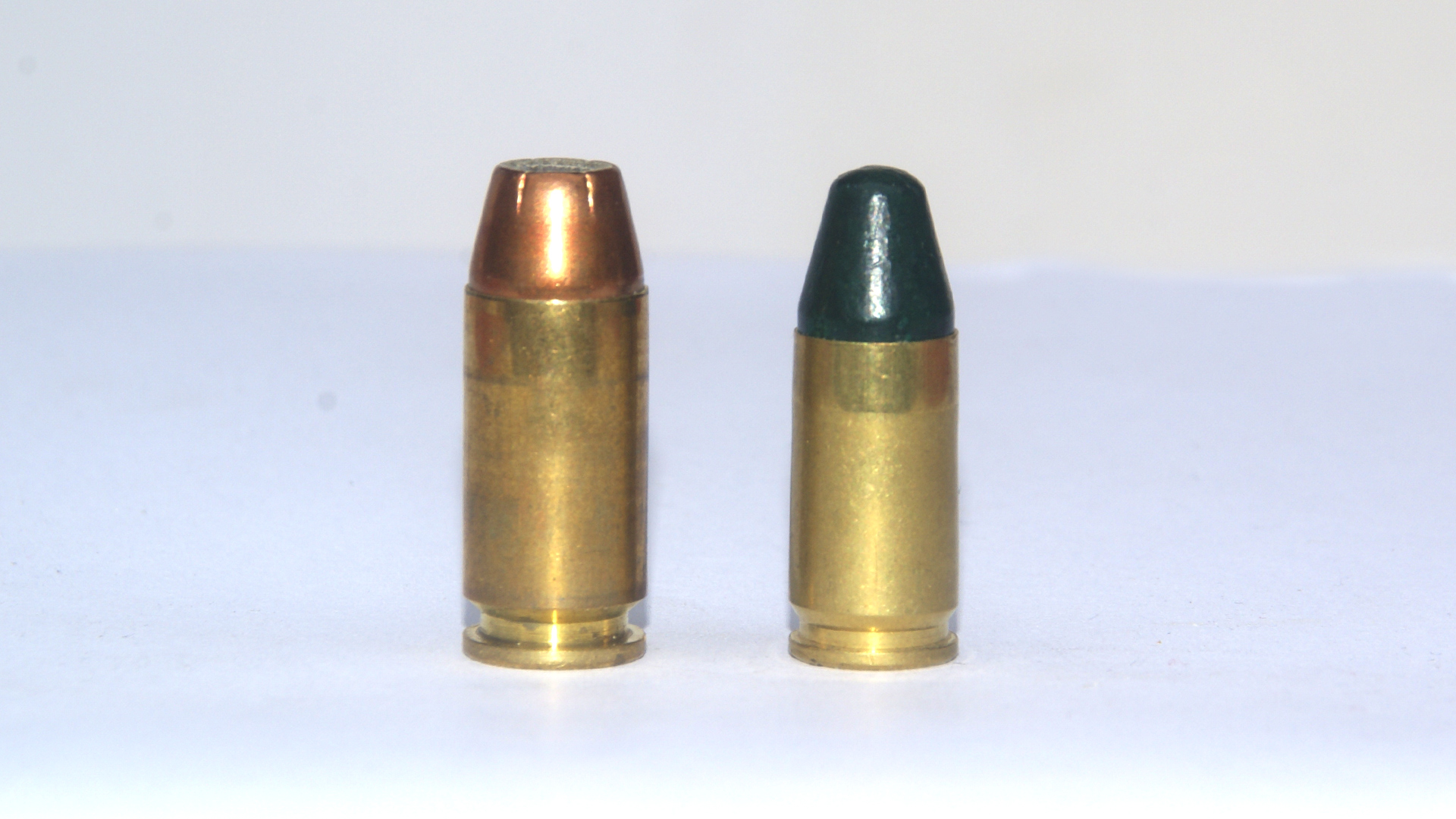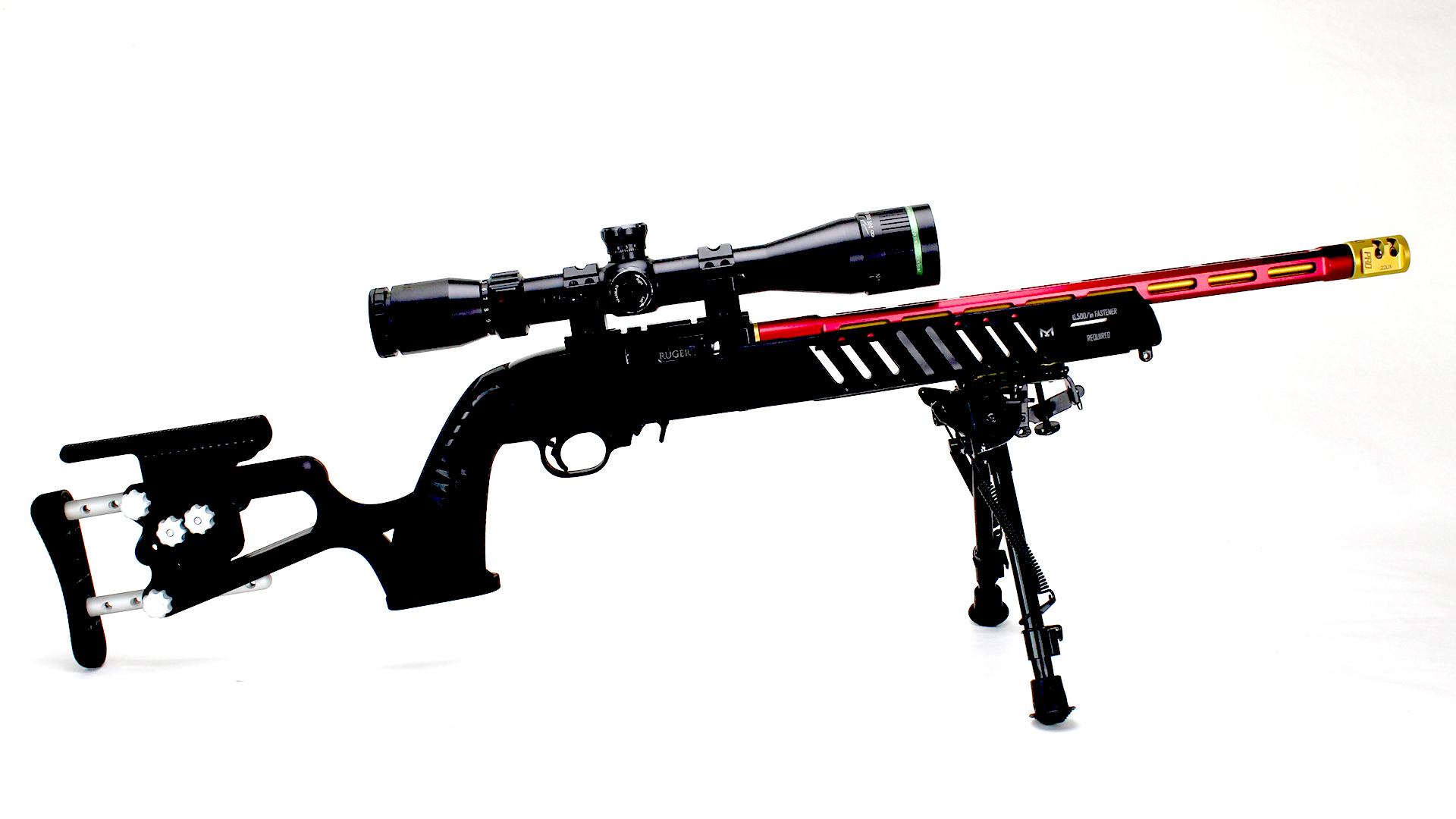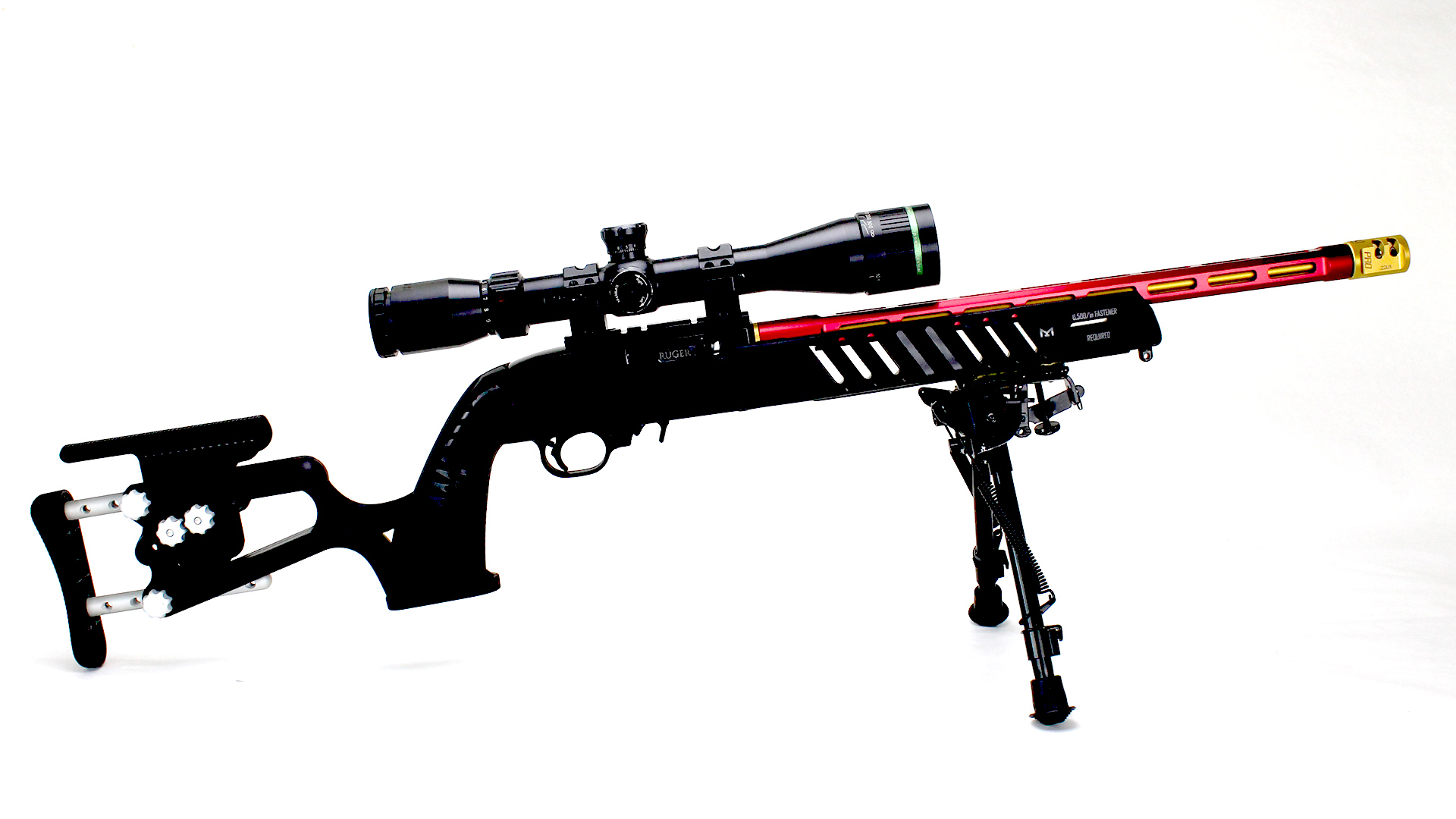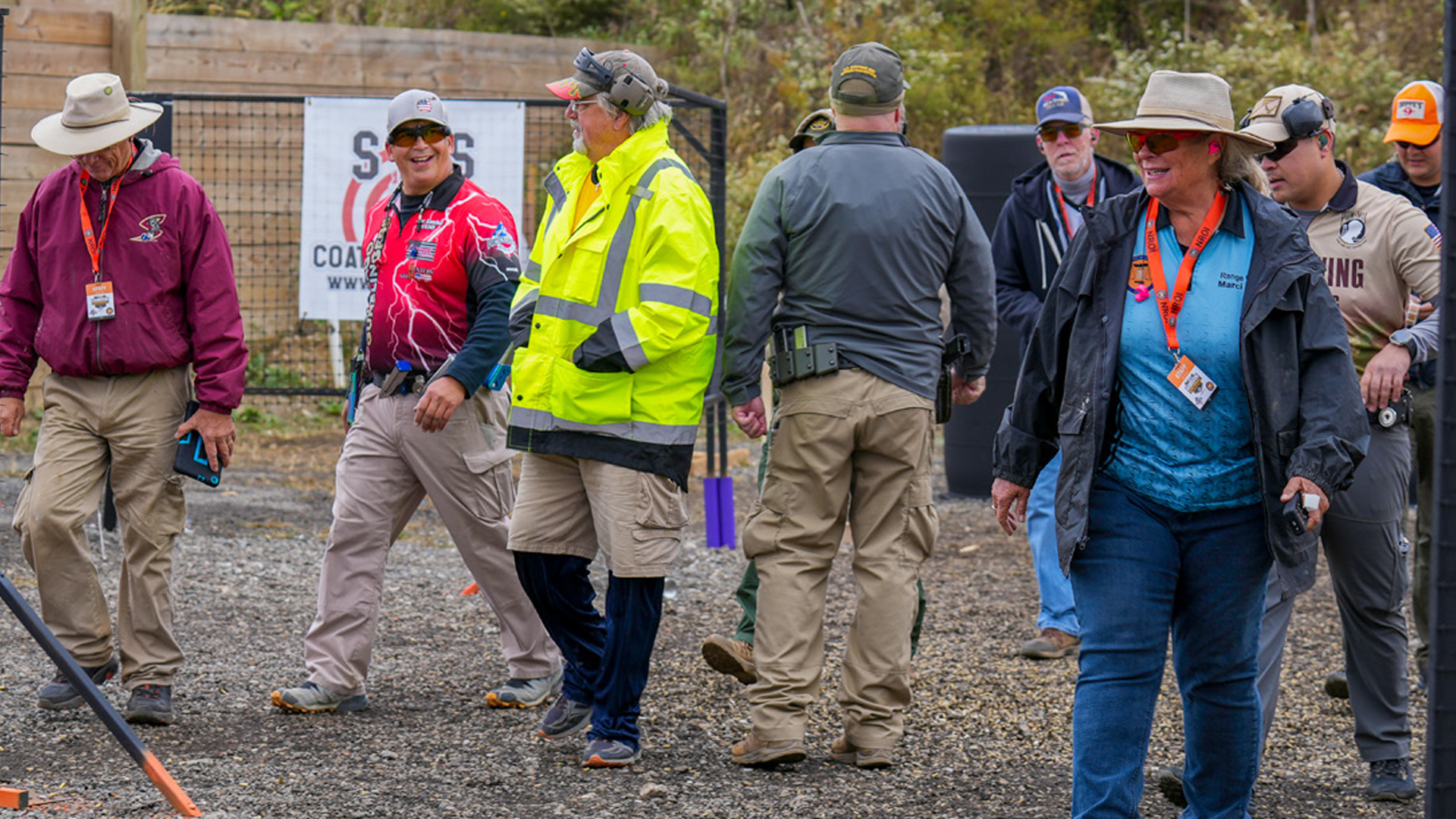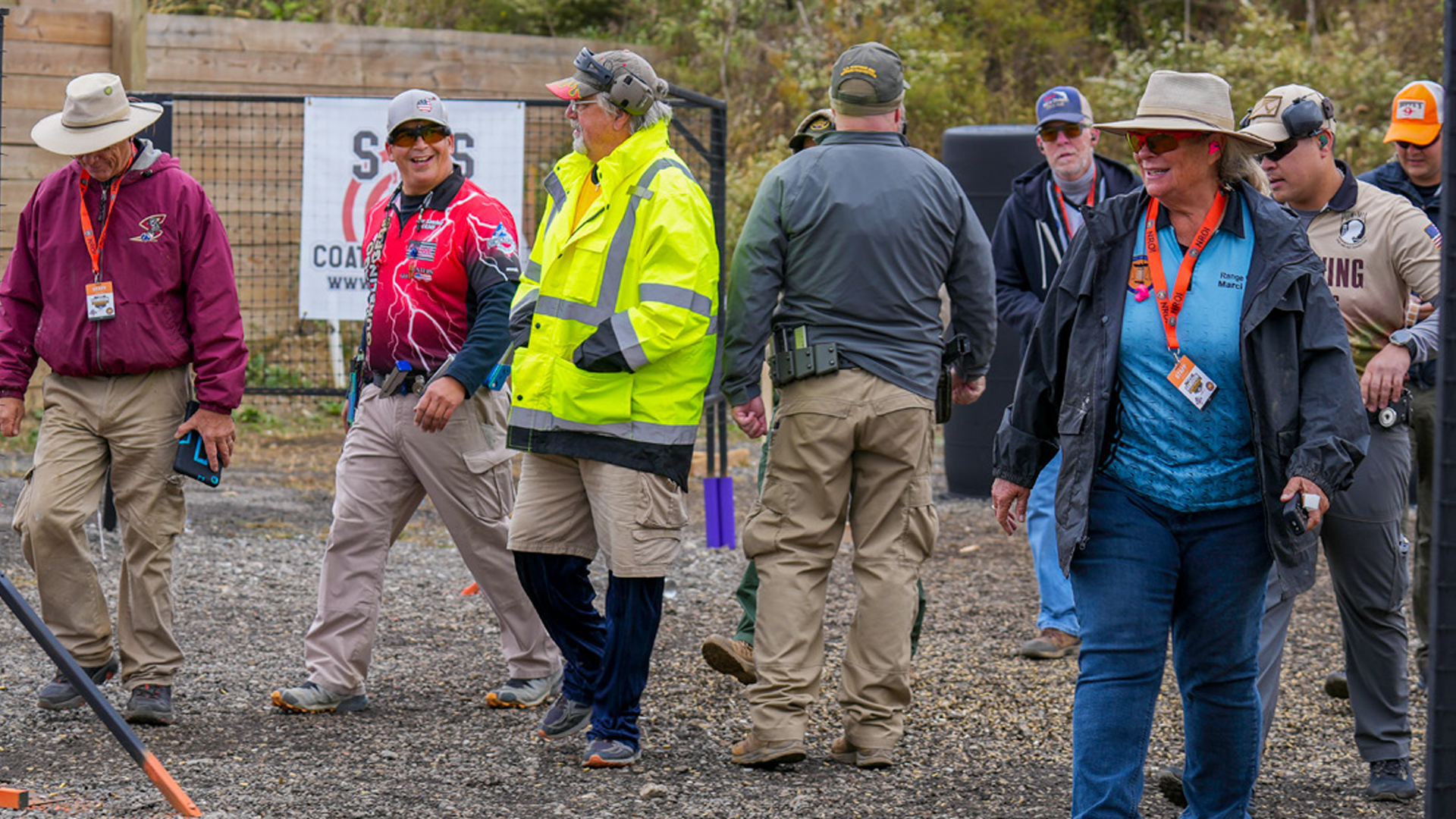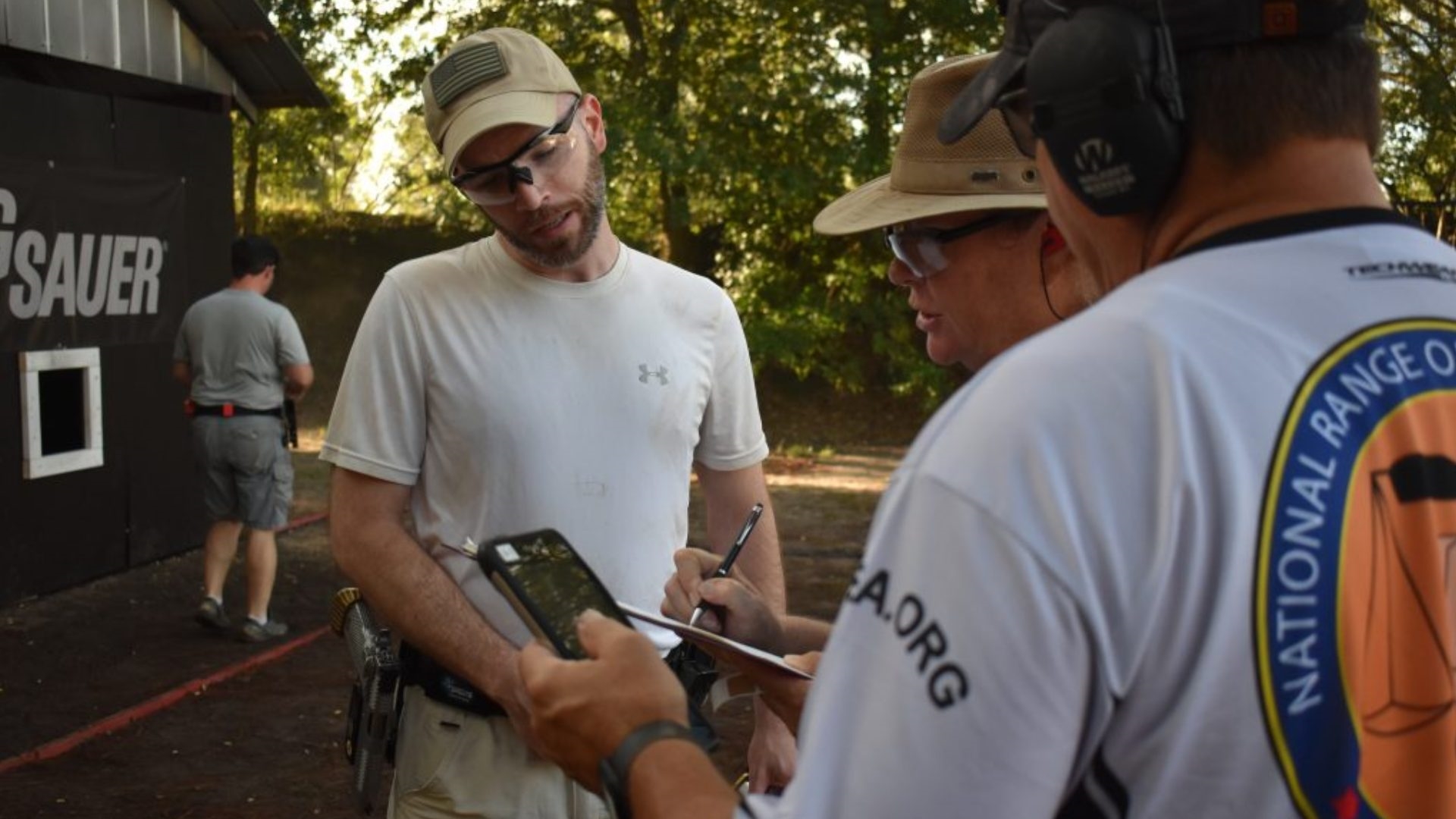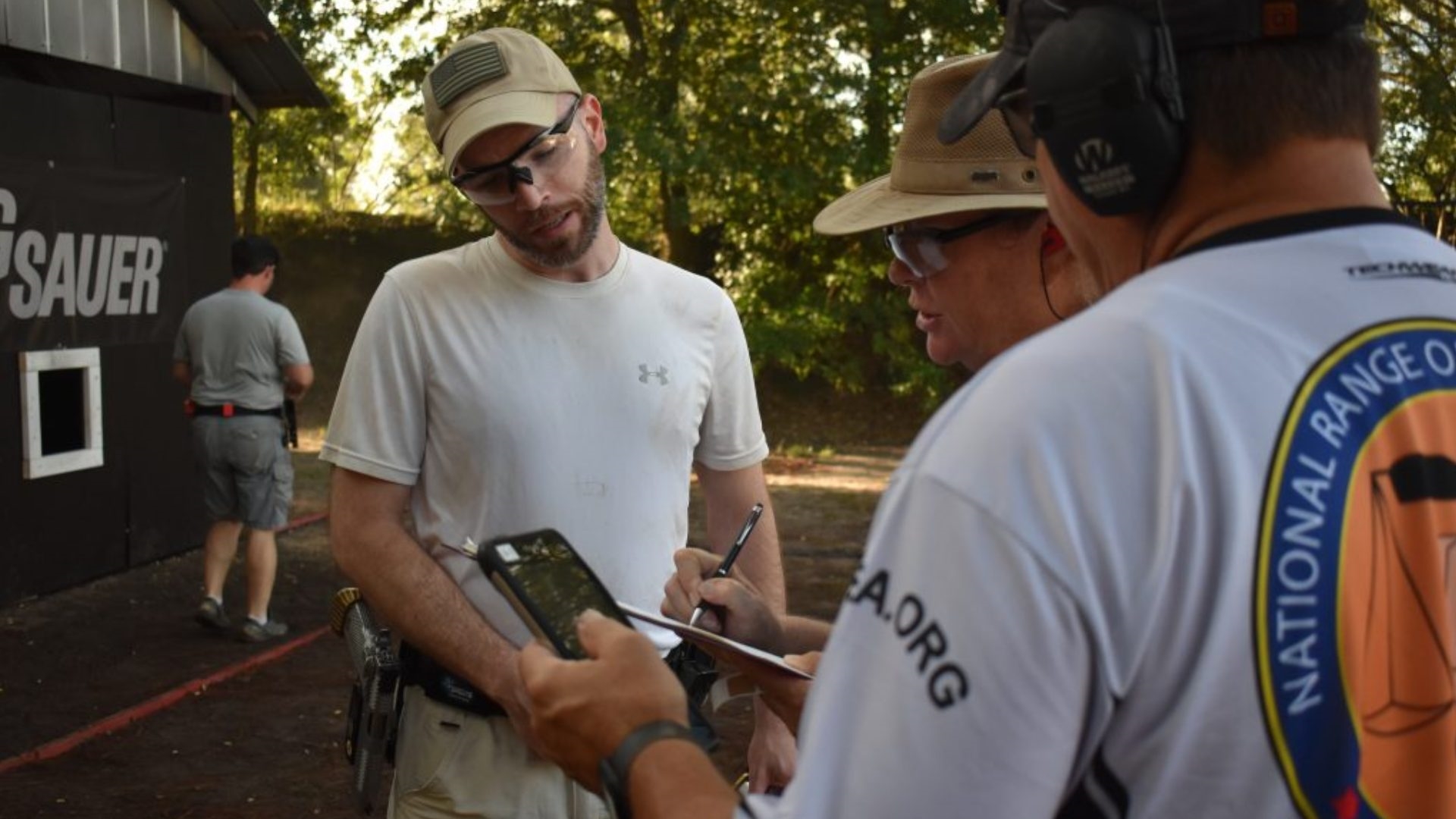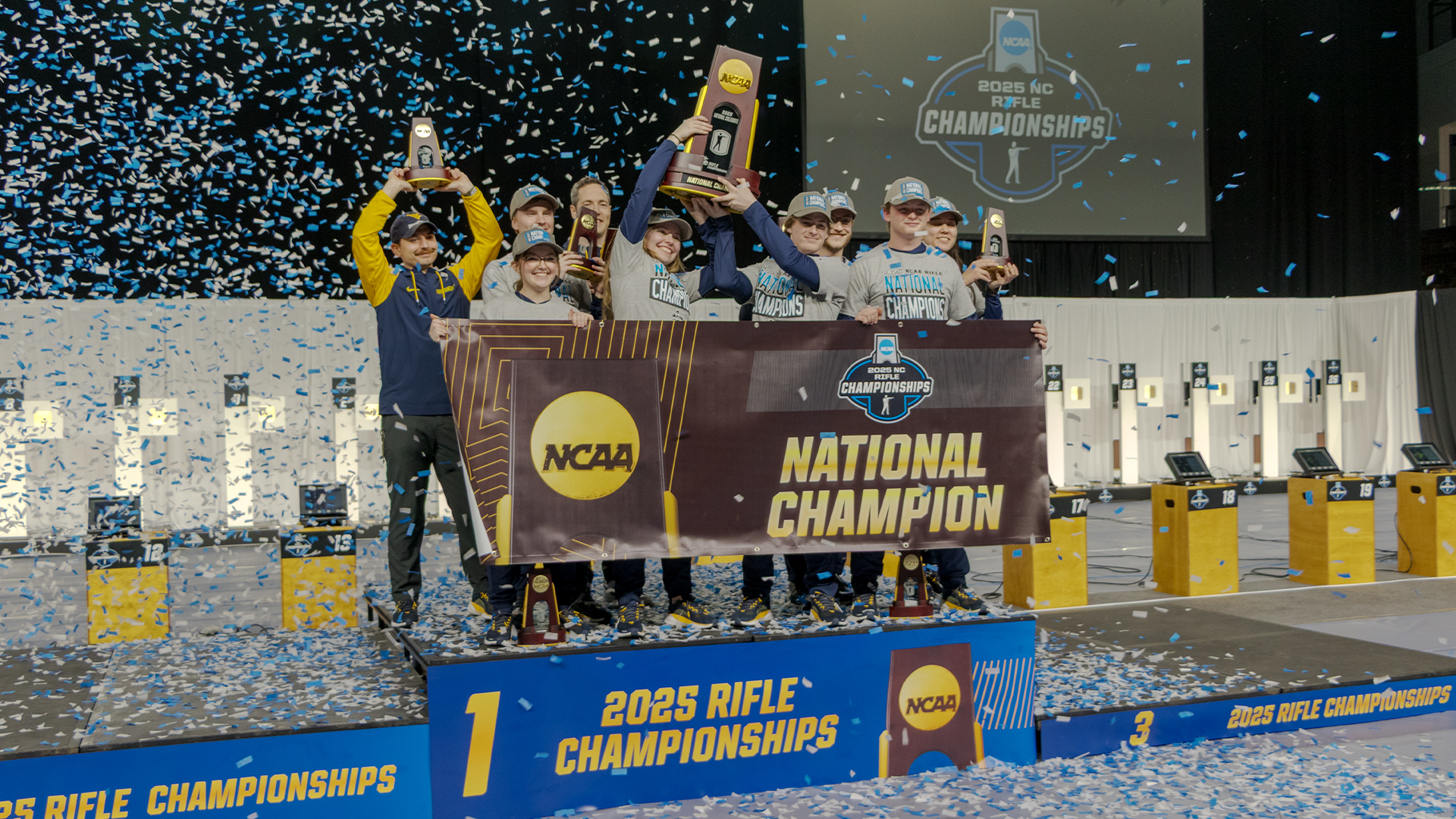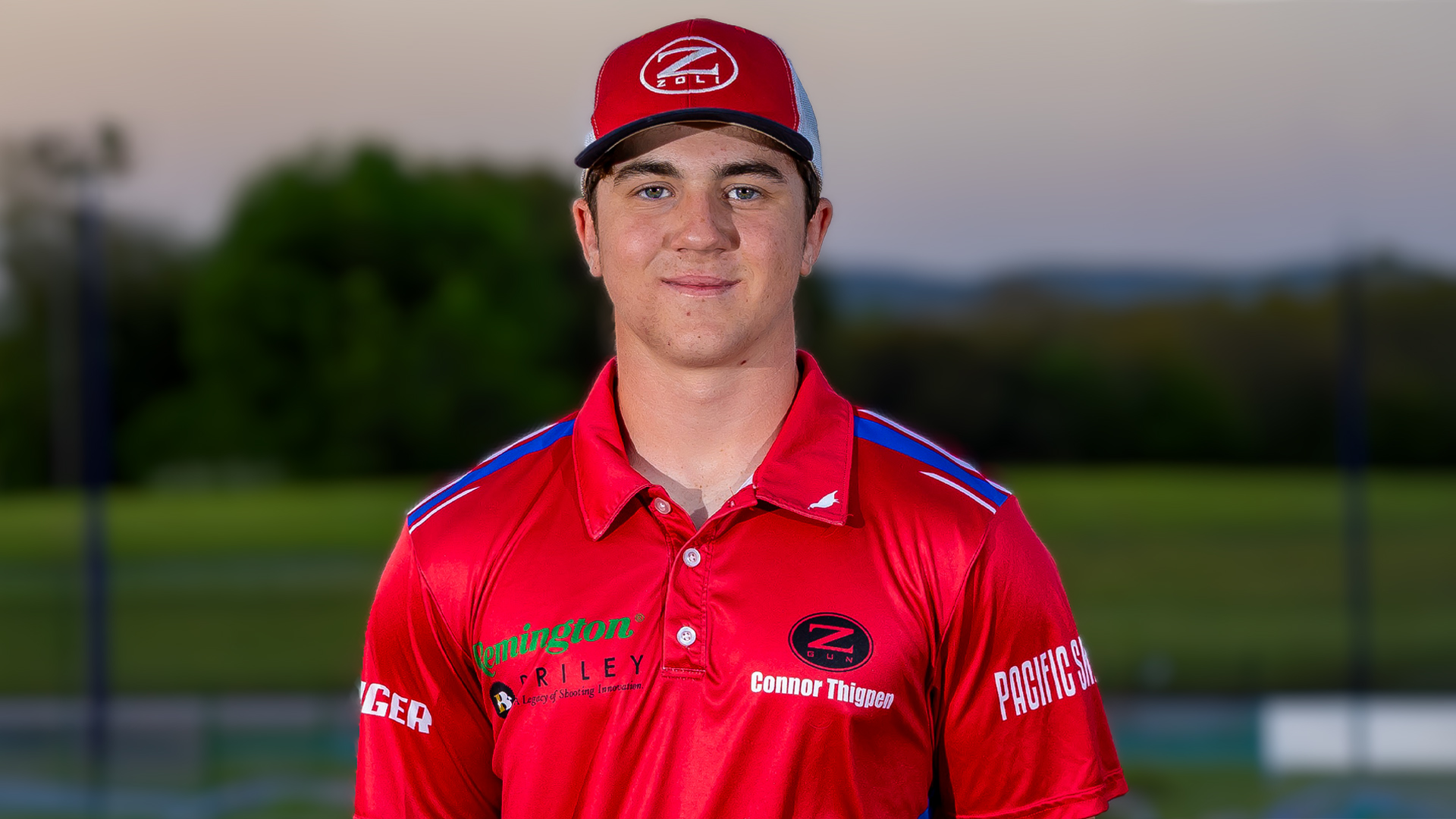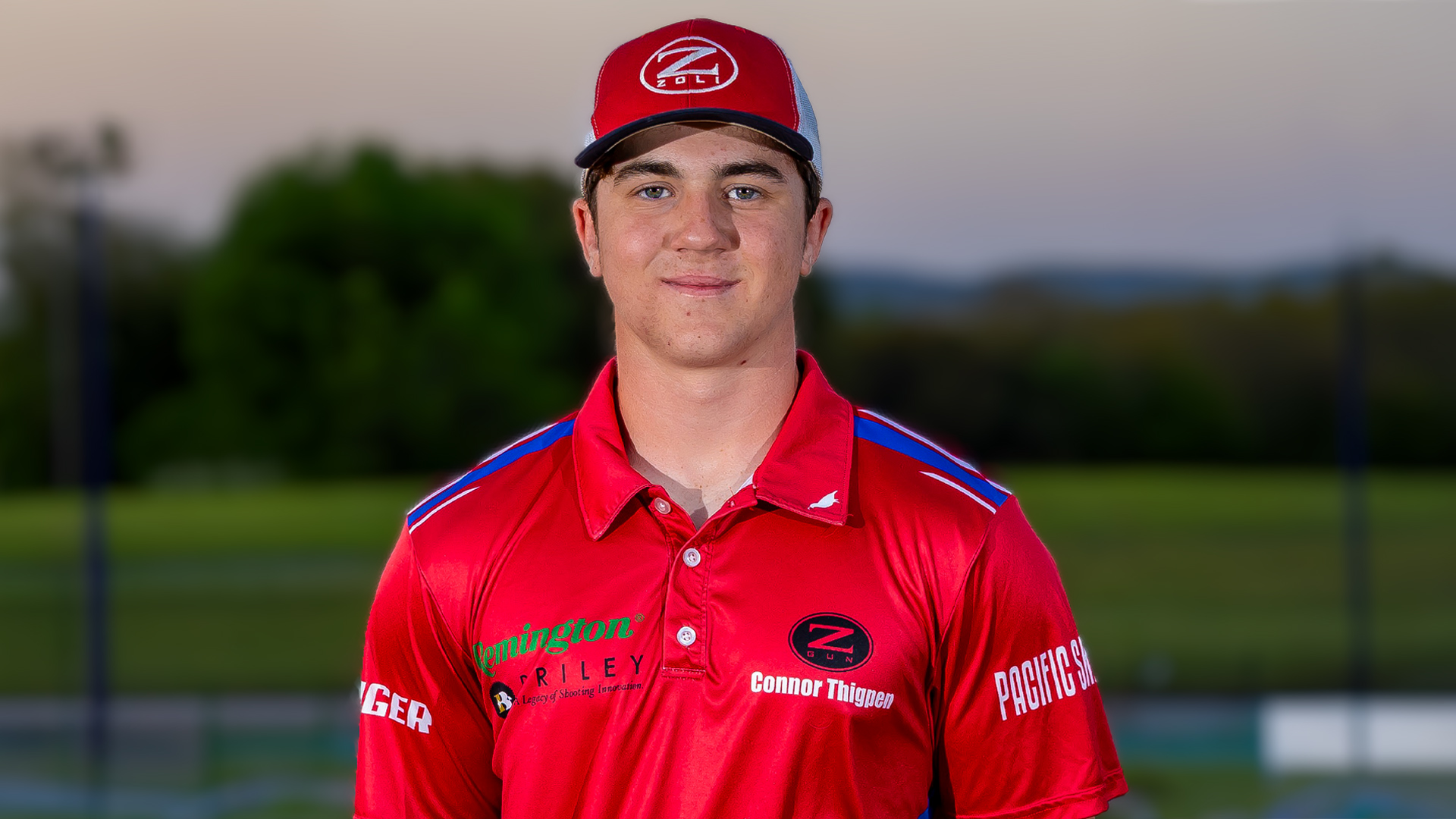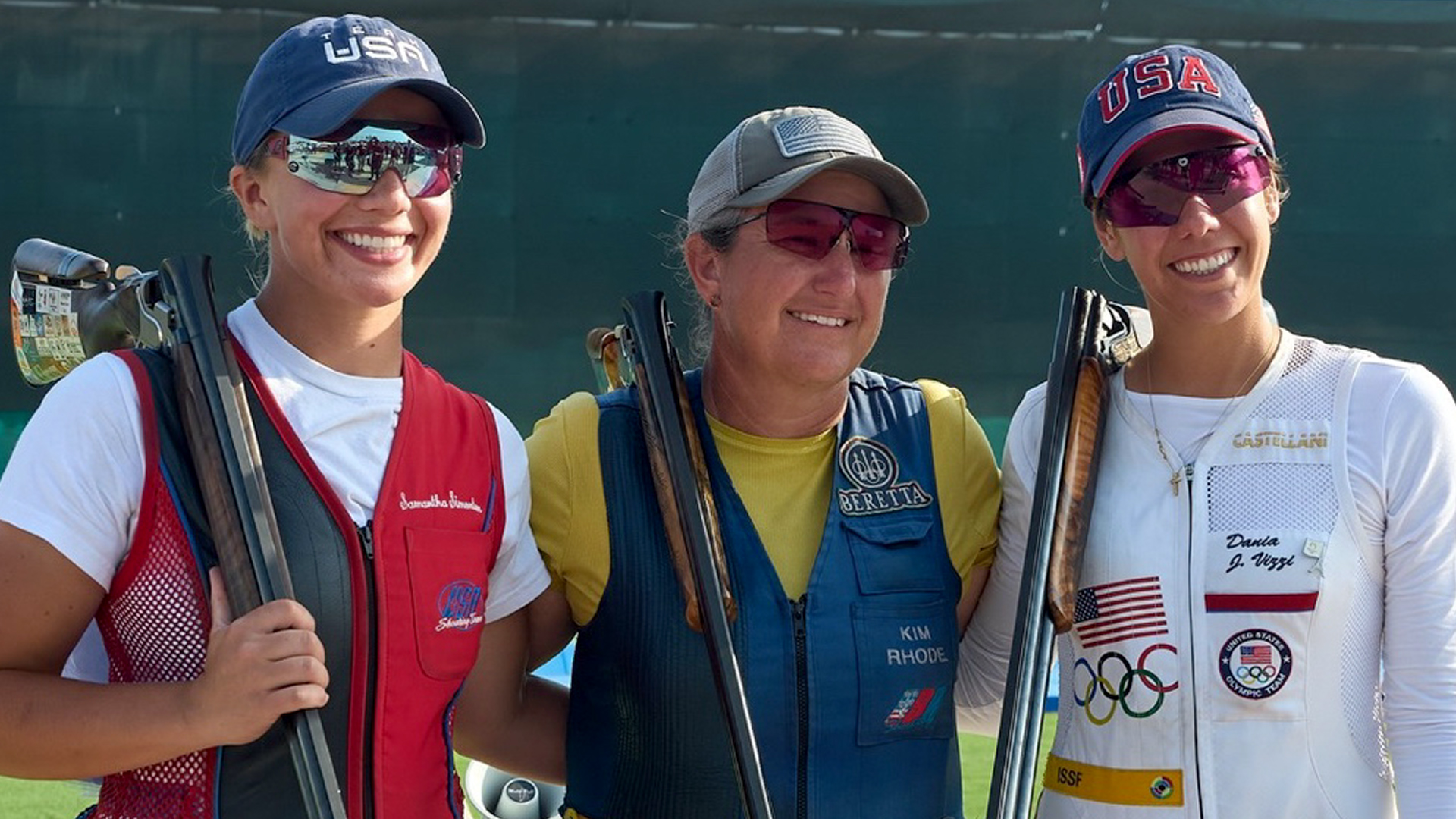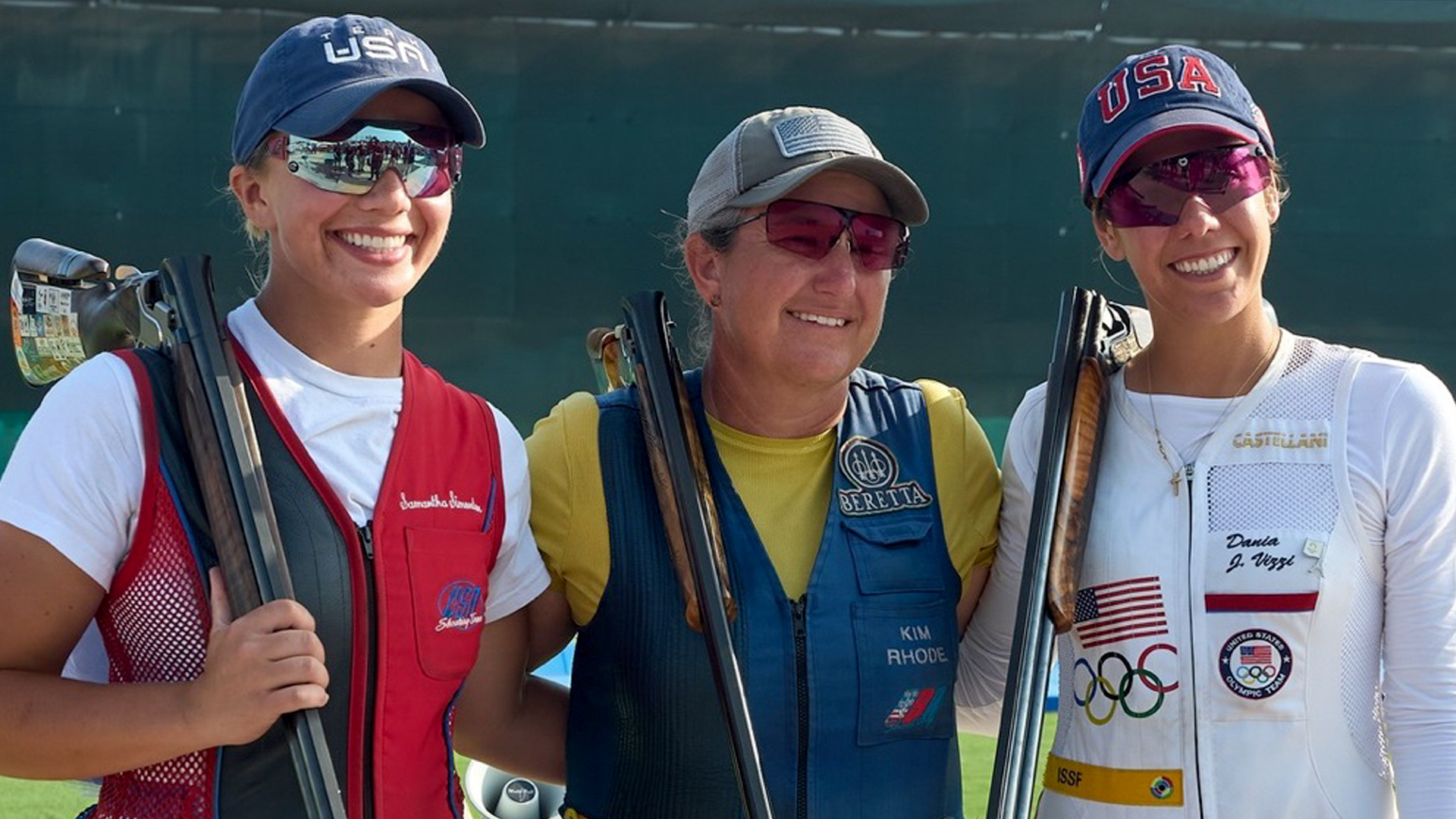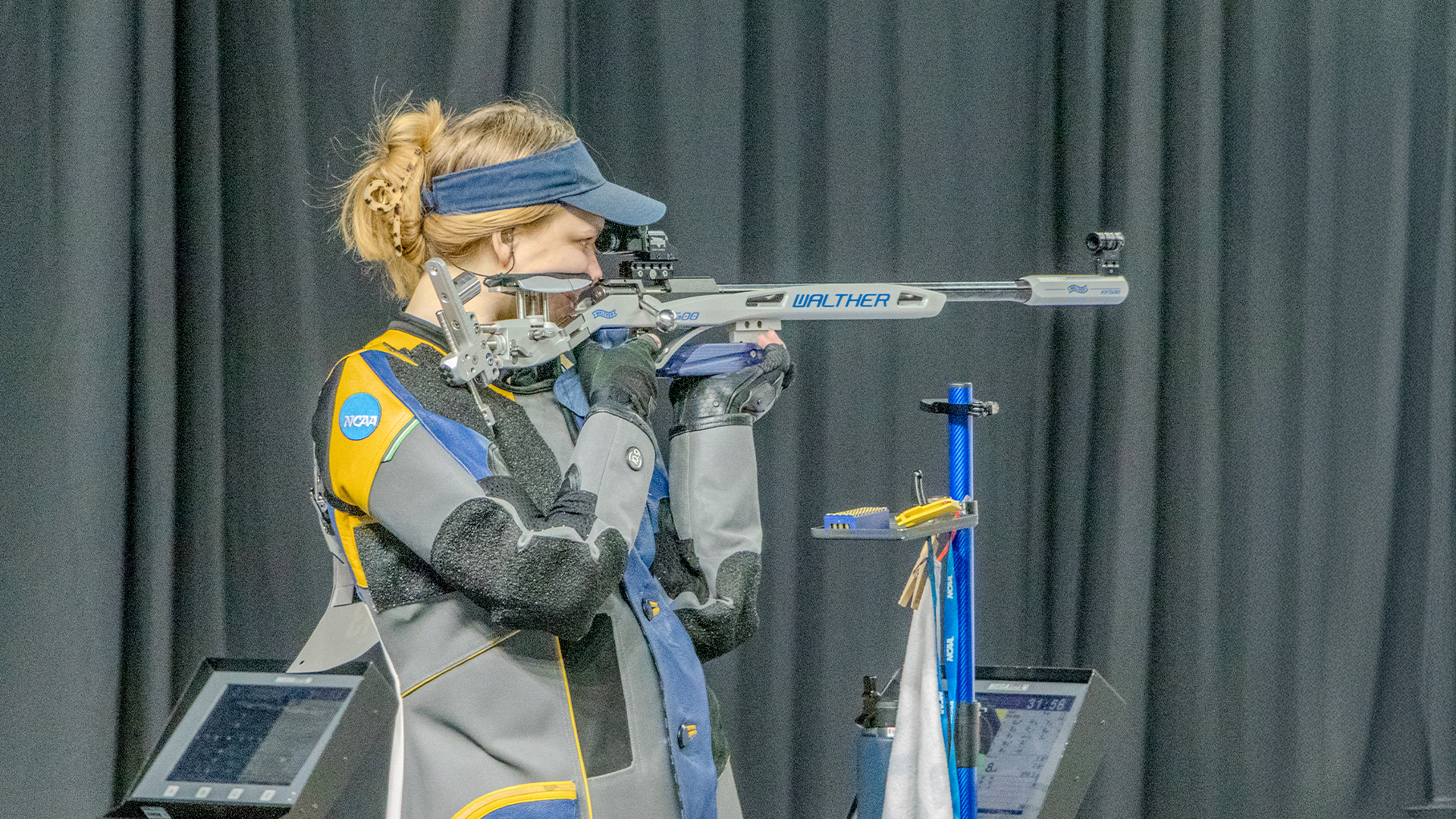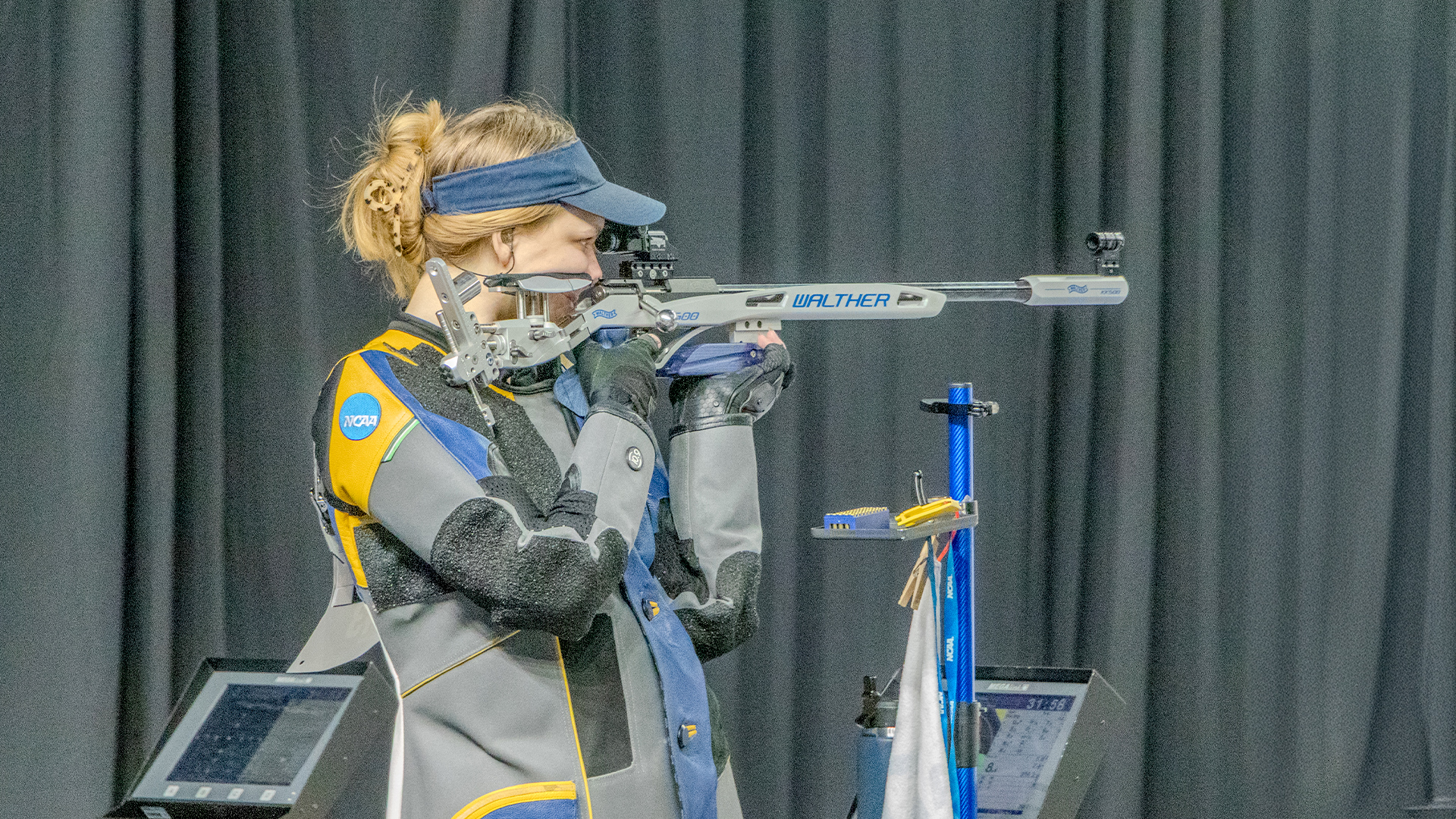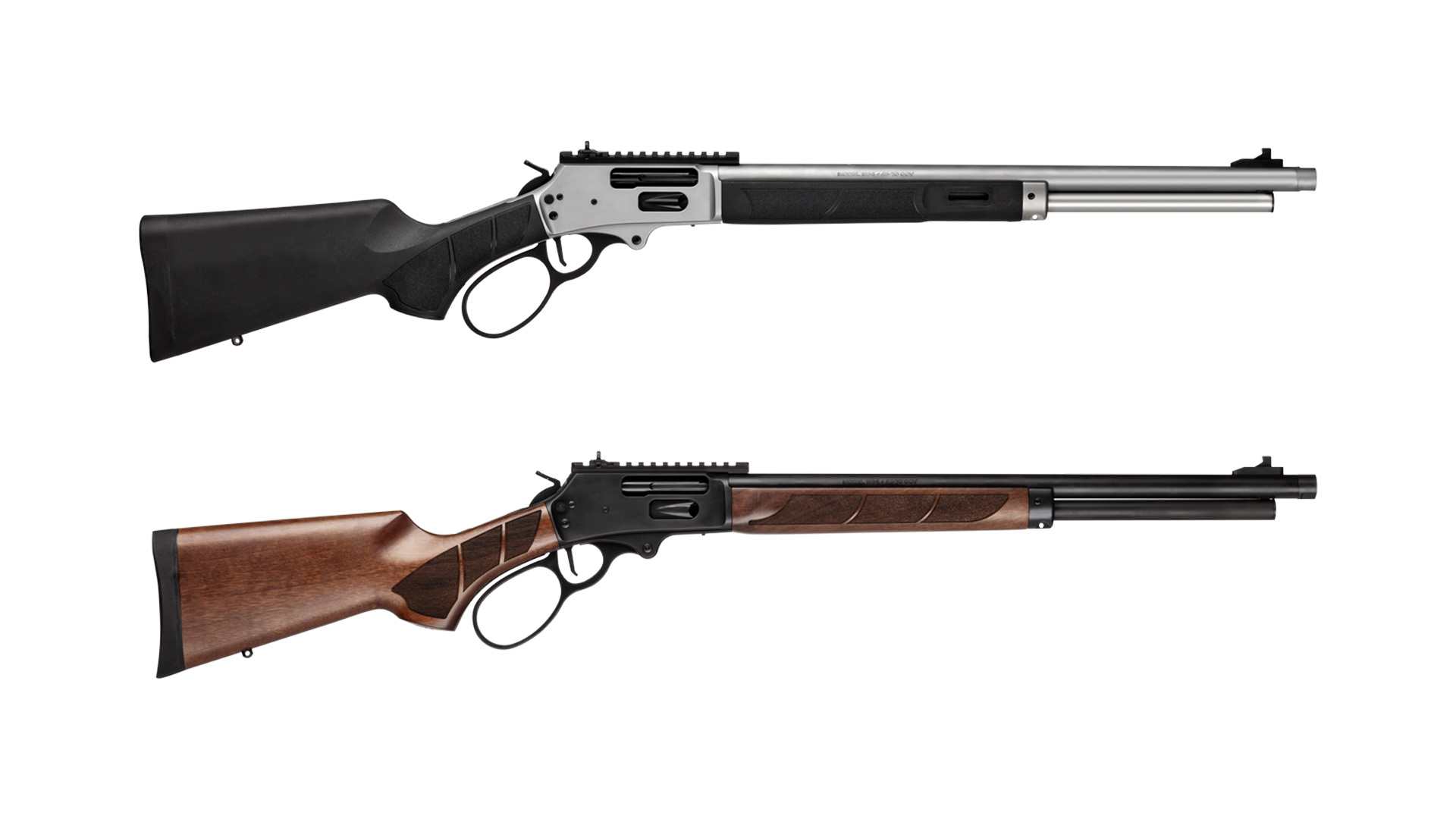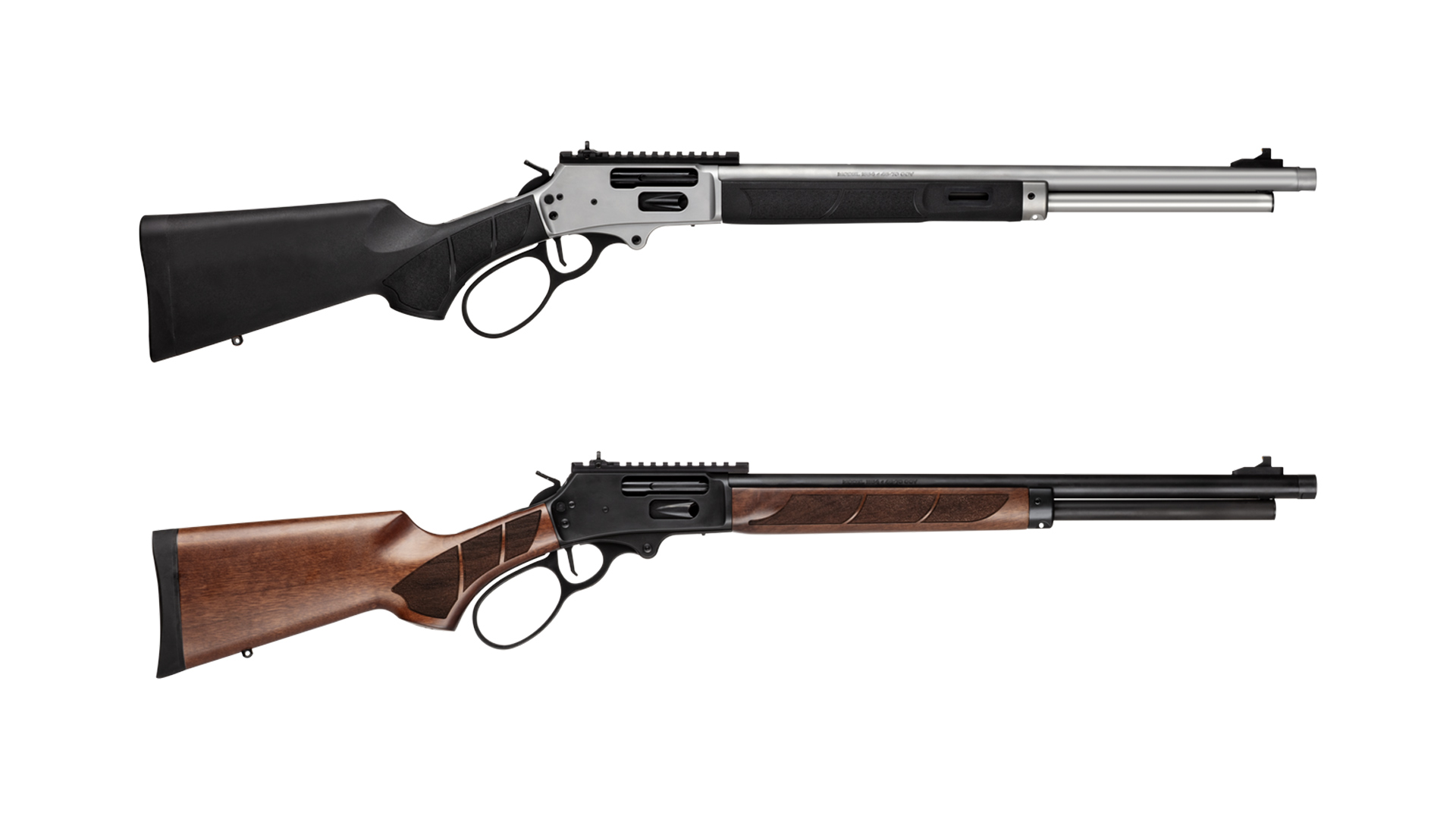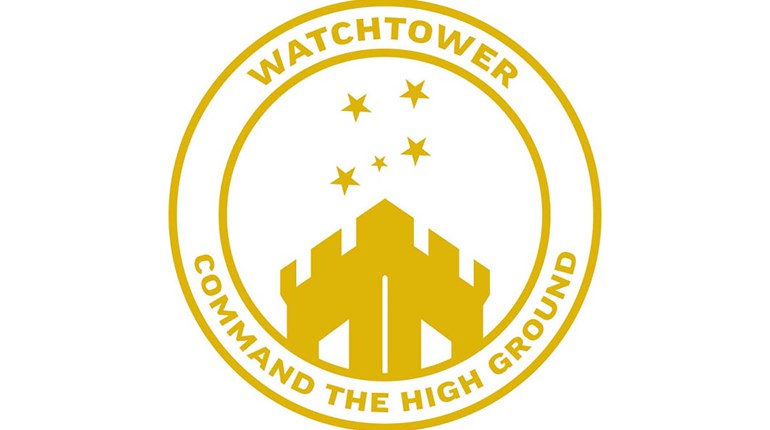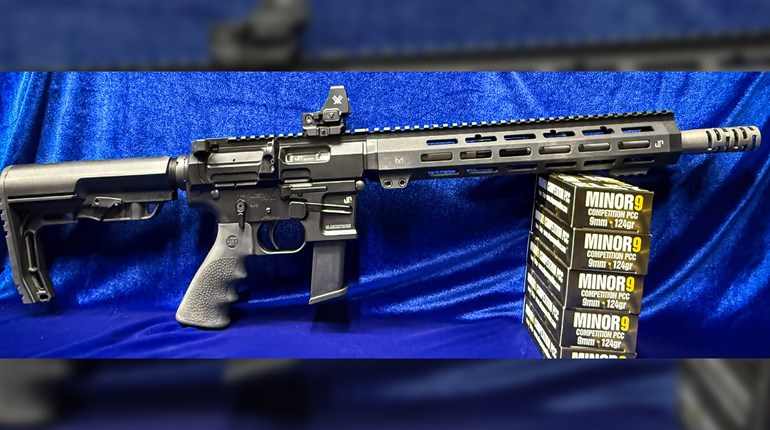
Each year at Camp Perry, Ohio, two new names are added to the Freedom’s Fire Trophy, which honors the first-place team in the National Trophy Junior Team Match. Since the trophy’s creation in 2009, five of those teams have come from the California Grizzlies, a team making a mark at Camp Perry under the leadership philosophies of two coaches: Jim O’Connell and John-Alistair George.
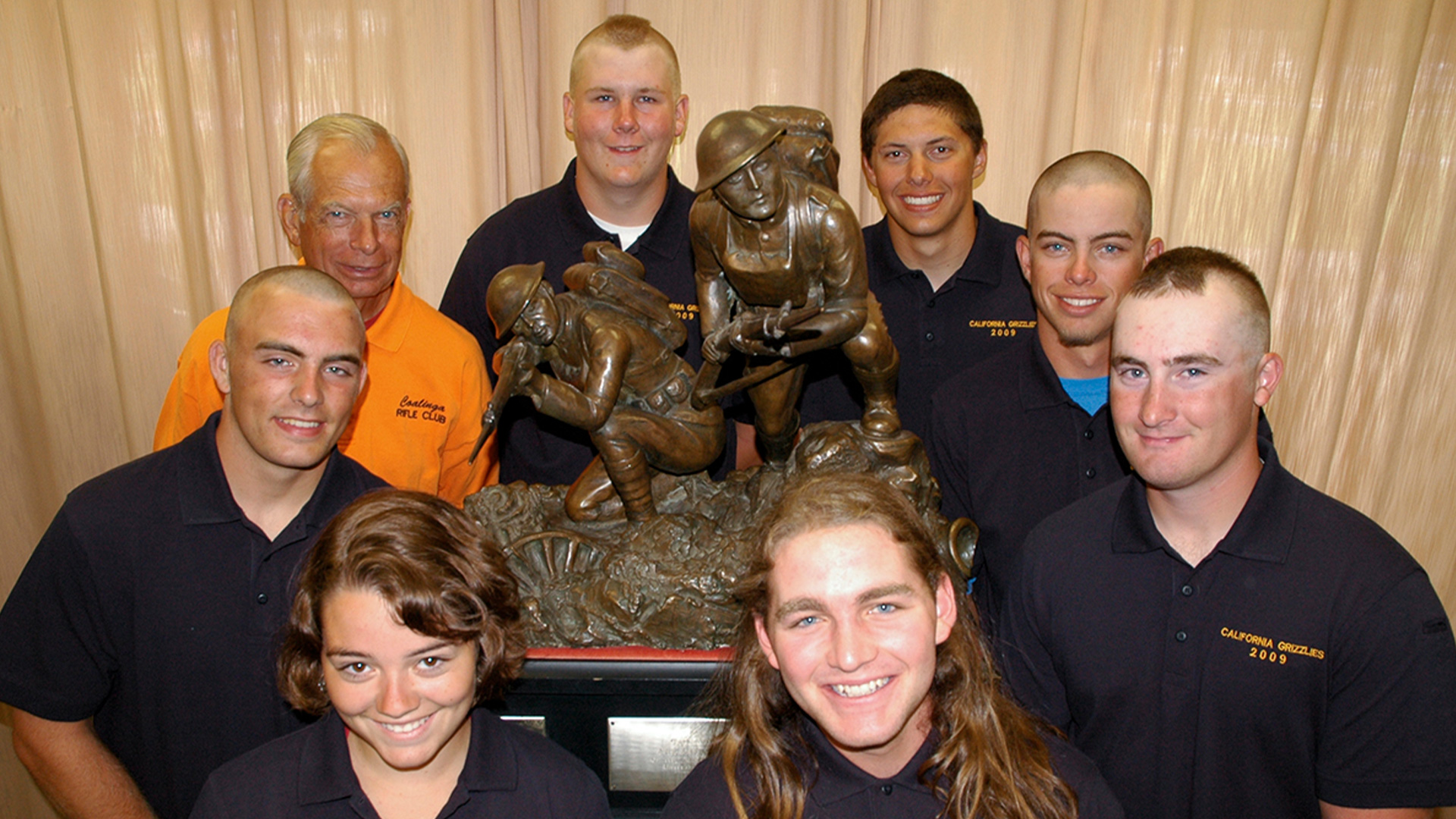
To O’Connell and George, shooting skills provide a solid foundation for the success of a marksman, but not the primary focus of their instruction. Instead, the pair of coaches teach lifelong skills that help the Grizzlies shooters thrive—both on and off the range. Winning is a secondary goal for the coaches. Building strong people comes first.
“We teach many of the fundamentals of shooting, but then we turn it around and teach them to respect their teammates, respect the military personnel and respect Camp Perry and the history here,” George said. “When you give kids a bigger purpose than winning, that translates into better shooting.”
That character training starts long before the team arrives at Camp Perry. For the last 14 years, O’Connell, a retired Marine and Distinguished High Master, has hosted “Camp O’Connell” for the Grizzlies.
“When they first started, they were just a small group, so I started a clinic at the Coalinga Rifle Range, and I train them for a week. They pitch their tents and camp there,” O’Connell said.
George mentioned the camp greatly impacted the team. “He runs us through the Rattle Battle to practice for that, and we practice a lot of teambuilding and bonding. For us, shooting comes second. We lay a life foundation that they work on.”
The Rattle Battle practice gives the team an edge at Camp Perry.
“At the junior level, not many teams train for Rattle Battle,” O’Connell said. “Because we train for it, if we have good zeroes and good wind calls, we’re likely to win. One year, the juniors won everything—High Overall, High Junior Team and High Civilian Team.”
Team building is a focal point of the California Grizzlies’ coaching philosophy.
“A lot of our success has to do with the fact that they’re a team and have to learn to work together. They’re like a chain. You’re only as strong as the weakest link,” O’Connell said. “Wherever we go, we walk as a group. We’re always together. If one guy slows down, you don’t leave him behind. We work as a unit. Shooting skills will get you there, but the team thing—that’s what helps you do well in a team match.”
While the California Grizzlies are a team, they are a team of individual, highly skilled marksmen who want to earn the right to compete in team matches at Camp Perry.
“Selection for the team is not done until we get here. It’s based on your scores when you’re here, so you can shoot your way onto the team,” O’Connell said. “It’s important for them to know they still have the possibility to get on the team.”
Entwined within the training on teamwork is the coaches’ effort to give the California Grizzlies the tools they need to flourish as marksmen and as individuals.
“We create an environment where they can perform the best they can. There’s no stress. They just go out there and do what they do. We want our kids to succeed, but we want to do it in a way that elevates them,” George said. “We [can] mold these kids into the best versions of themselves. We don’t put up guardrails. We create an environment where they can thrive.”
George said the team faces unique challenges training with AR-15s in a state that is not gun-friendly, but they turned those disadvantages into strengths to build a strong winning record.
“This match is special to us from California because we have our own challenges and restrictions,” George said. “At one time, California banned all service rifles and we had to use bolt action rifles. That put us at a great disadvantage, but we did what needed to be done.”
Throughout the years, California law forced the California Grizzlies to use bullet buttons, restricted adjustable stocks and disallowed pistol grips. In the end, the challenges turned the Grizzlies into a stronger team.
“All the things that initially should have put us at a disadvantage made us focus on principles and made us better over time,” George said. “We had to change the way we taught the kids, and it made them better. They had to pay more attention to what they did.”
O’Connell and George could have applied their skill and success to something other than young marksmen, but they believe the extra effort they put into the California Grizzlies pays off in winning records and successful kids, some of whom eventually became members of the U.S. Army Marksmanship Unit.
“What I like best about teaching juniors is, the ones we have usually stay around a while. We get them from 12- or 13-years-old to college,” O’Connell said. “We watch them grow and get better each year. You don’t mind putting time into them because they’re developing.”
Learn more about the California Grizzlies at calgrizzlies.org, and CMP at thecmp.org.

